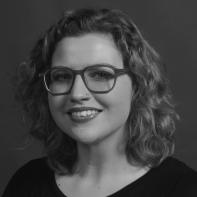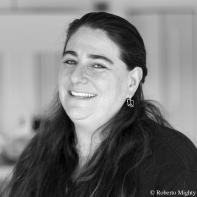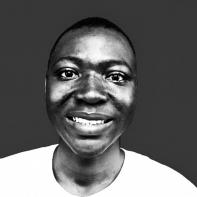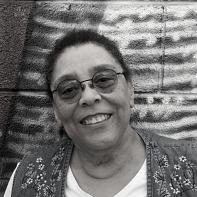Submitted by pcmasuedu on
Adde Gross

Adde Gross is a contemporary painter from Baltimore who strives to educate viewers on the decaying health of our planet with a focus on man’s direct impact. Each piece begins with an environmental or social concept that she wants to explore for her own self refection, or to bring to light an issue that should be examined. Art can act as a unifier; it can tell a story that can transcend the viewer’s language, class, or background. Adde earned her BFA in May 2020 and has been featured in over a dozen campus exhibitions and is now earning her MAT.
Adde Gross

Adde Gross is a contemporary painter from Baltimore who strives to educate viewers on the decaying health of our planet with a focus on man’s direct impact. Each piece begins with an environmental or social concept that she wants to explore for her own self refection, or to bring to light an issue that should be examined. Art can act as a unifier; it can tell a story that can transcend the viewer’s language, class, or background. Adde earned her BFA in May 2020 and has been featured in over a dozen campus exhibitions and is now earning her MAT.
Dara Herman Zierlein

Dara is a political artist, illustrator and painter who continuously uses her art to advocate awareness in the world. Dara’s work have been exhibited internationally and she has been published in among others, Mom Egg Review, Resist Grab Back, The Earth Issue, Demeter Press, Lunch Ticket, and The Nation OPPART. She is currently illustrating for The Rumpus, a literary forum. Her first children’s book, Don’t Eat the Plastic, will be published Spring 2021
Dara Herman Zierlein

Dara is a political artist, illustrator and painter who continuously uses her art to advocate awareness in the world. Dara’s work have been exhibited internationally and she has been published in among others, Mom Egg Review, Resist Grab Back, The Earth Issue, Demeter Press, Lunch Ticket, and The Nation OPPART. She is currently illustrating for The Rumpus, a literary forum. Her first children’s book, Don’t Eat the Plastic, will be published Spring 2021
Ishaq Adekunle

Ishaq Adekunle is a writer and visual artist of Al-Kharashi, Ibadan, Nigeria. He has been learning the state of well-being amidst the African children and wanting to amplify their voices. To this effect, lately, he decided to tell their stories in his writings and artworks, some of which have appeared or forthcoming on Chestnut Review, Drexel, Sun paper magazine, GetlitNaija, Angnst Zine, EyeEm NYC, New Horizon Creatives and elsewhere.
Ishaq Adekunle

Ishaq Adekunle is a writer and visual artist of Al-Kharashi, Ibadan, Nigeria. He has been learning the state of well-being amidst the African children and wanting to amplify their voices. To this effect, lately, he decided to tell their stories in his writings and artworks, some of which have appeared or forthcoming on Chestnut Review, Drexel, Sun paper magazine, GetlitNaija, Angnst Zine, EyeEm NYC, New Horizon Creatives and elsewhere.
Mary Hope Whitehead Lee

Since the early 1980s, Mary Hope Whitehead Lee has worked in the following media: collage, mixed media, soft sculpture, beadwork, embroidery, installation, and bookmaking. Her work has been exhibited and sold in California and Arizona. She is an active member of the Cardboard House Press Cartonera Collective, and her most recent work can be found at Palabras Bilingual Bookstore. Mary Hope was born and raised in San Diego, California — traditional Kumeyaay tribal territory. She currently resides in the northern Sonoran Desert in metropolitan Phoenix, Arizona – home of the Salt River Pima-Maricopa Community.
Mary Hope Whitehead Lee

Since the early 1980s, Mary Hope Whitehead Lee has worked in the following media: collage, mixed media, soft sculpture, beadwork, embroidery, installation, and bookmaking. Her work has been exhibited and sold in California and Arizona. She is an active member of the Cardboard House Press Cartonera Collective, and her most recent work can be found at Palabras Bilingual Bookstore. Mary Hope was born and raised in San Diego, California — traditional Kumeyaay tribal territory. She currently resides in the northern Sonoran Desert in metropolitan Phoenix, Arizona – home of the Salt River Pima-Maricopa Community.

